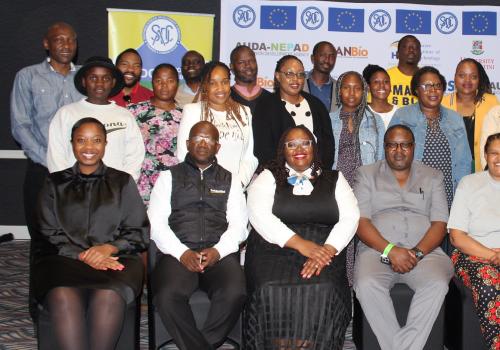The Southern African Development Community (SADC) Secretariat, in collaboration with the Deutsche Gesellschaft für Internationale Zusammenarbeit (GIZ), hosted an information-sharing and best practices workshop for the Support to Industrialisation and Productive Sectors (SIPS) Programme grants on 03 September in Durban, South Africa.
The workshop drew delegates from the SADC Secretariat, the GIZ, SA’s Department of Science and Innovation, the Council for Scientific and Industrial Research (CSIR), the Southern Africa Network for Biosciences (SANBio), the Harare Institute of Technology (HIT), the University of Eswatini (UNESWA), Mitch Investments and Solidaridad.
The workshop provided an update on the three grant projects supported under SIPS in the Antiretroviral (ARV) and Leather value chains. The ARV Value chain projects are operating in Eswatini, Lesotho, Malawi, South Africa, and Zimbabwe whilst the Leather value chain project is operating in Tanzania and Zimbabwe.
The workshop also provided a platform for project partners to share their experiences and information on issues related to the development of Antiretroviral and Leather value chain and MSM enterprise development as well as Intellectual Property rights.
Welcoming the delegates to the workshop, Ms Thato Morokong, acting Deputy Director at the Department of Science and Innovation (DSI) in the Ministry of Higher Education, South Africa, underscored the importance of the theme of the Bio Africa Convention ambit titled: Re-imagining biotechnology innovation for Africa’s Development and security.
Currently, the DSI is implementing a 10-year innovation plan on science, technology, and innovation that stresses the role of agriculture as well as health, specifically bio-innovation and biotechnology, deployment and utilization of pharmaceutical products, and indigenous knowledge systems.



Leave a Reply